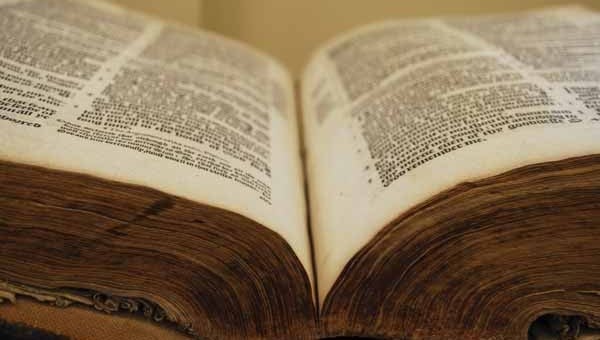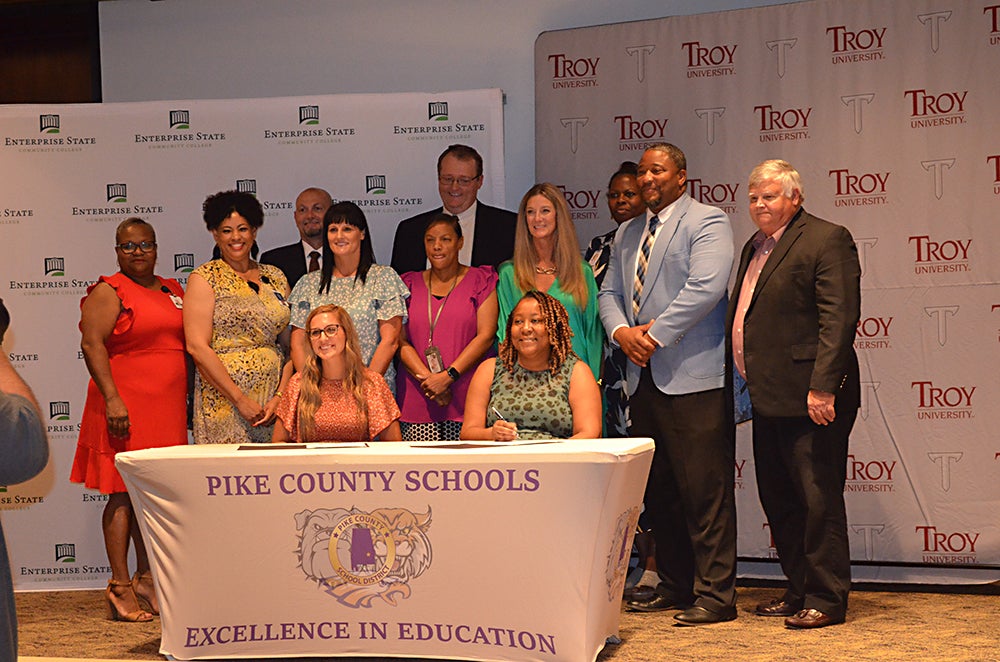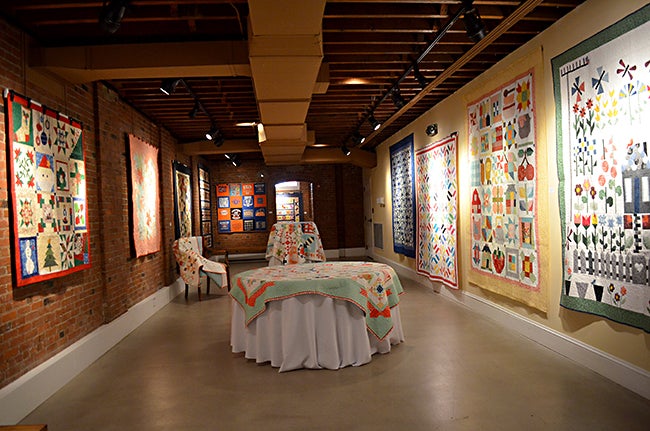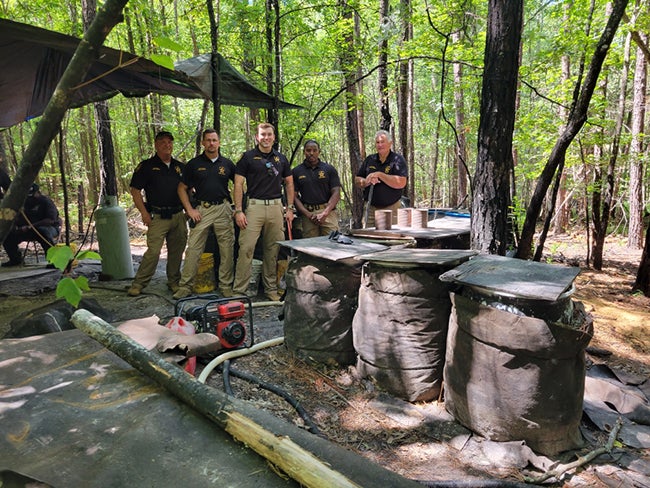Michael Morgan displays his extensive collection of Bibles and Psalters
Published 11:00 pm Friday, December 7, 2012

Beauty was found in the wear of the rare English Bibles on display at the Troy Public Library Friday. Visitors were allowed to flip through many of the books collected by Michael Morgan that date back to the 1300s.
In speaking of the Bible, Benjamin Franklin said that “we” will not fully understand the Bible until we meet the author.
The translators of the Bible, not the author, were the focus of the lecture given by Michael Morgan of Atlanta at the Troy Public Library Friday afternoon. The lecture was hosted by the Troy Arts Council and the city library.
Morgan has an extensive collection of rare early English Bibles and Psalters.
A small portion of his collection was on display at Troy Public Library throughout the day on Friday.
“I don’t have the most extensive collection, but probably do have the most comprehensive collection,” Morgan said. “Virtually every English version is represented – the Bible, the New Testament, the Gospels and Psalms.”
Morgan’s collection of more than 4,000 translations includes 1,000 Psalms, 375 Bibles and 600 New Testaments and is valued at more than $1.5 million.
To house the collection, Morgan has built a wing on his home that is virtually fireproof.
He began collecting English translations in 1970 as a graduate student. As a church organist, he had a passion for the hymns and for the Bible.
“I decided to concentrate on the translations of the English Bibles,” he said.
A most prized Bible in his collection is a first printing of the King James Bible.
“I am very blessed that my mentor left me a first printing of the King James Bible, a value in the six figures,” Morgan said. “On my salary as organist at Central Presbyterian Church in Atlanta, it is a collection I would never have had.”
Some of the artifacts that were on display at the Troy Public Library are more than 470 years old.
Included in the Bible exhibit were versions by John Wycliffe, the “Morningstar of the English Reformation,” and William Tyndale, who was burned as a heretic for his translation of the New Testament.
Also in the exhibit were versions by Miles Cloverdale, the priest who translated the first complete printed English Bible, the Great Bible of Henry the Eighth, the version done by the English and Scottish refugees during the reign of “Bloody Mary” and the first Catholic Bible in English.
Editions of the King James Bible included all of the major revisions from 1616 to 1769 and several illustrated editions.
As fascinating as the Bibles, New Testaments and Psalms were, Morgan’s extensive knowledge of the people who made the translations and their stories also caught the ears of the audience.
Women played a role in translating the Bible to English. Among them were Margaret Patullo and Julia Smith.
“Margaret Patullo was the first woman to translate the Book of Psalms,” Morgan said. “She was a chronologically gifted lady in Perth, Scotland. Over the years, she had paraphrased the Psalms for her own devotional contemplation.”
One Sunday after church, Patullo asked her minister to read the manuscript and offer suggestions to improve it.
“After reading a few of her verses, the minister realized that the poetry was not the best,” Morgan said. “But rather than confront her with his judgment call, he put the notebook in a drawer and forgot about it.”
A couple of years later, Patullo asked for the manuscript back and was told by the minister that there was nothing he could do to make it better.
“Margaret Patullo took that to mean it was perfect the way it was,” Morgan said. “She then had enough copies printed at her own expense to give to all of her friends and enough to stock the bookstores in Glasgow and Edinburgh.”
Her friends realized, too, that her poetry was not the best. To spare Patullo the embarrassment of having a critic’s unfavorable review, her friends bought all available copies and destroyed them.
“Margaret Patullo went to her grave thinking she had written a version of Psalms that had sold out quickly,” Morgan said. “That book is now one of the rarest Psalters to be found.”
Another woman of special interest was Julia Smith of Glastonbury, Connecticut, who had a working knowledge of Latin, Greek and Hebrew.
After having read the Bible in its original language, Smith created her own which she completed in 1855 after a number of revisions. She accomplished the work on her own because she said that she knew of no one who knew more about it than she did.
In 1876, when Smith was 84 years of age and 21 years after completing her work, she and her sister, Abby Smith, published her work at a cost of $4,000.
Morgan displayed two 1613 printings that once belonged to President Franklin Pierce and Mary Phillips, the last woman in England to be burned as a witch in 1705. Both attracted great interest from the audience.
Morgan said his mentor taught him to never stop learning, reading and researching.
“It is amazing what all there is to learn,” he said. “And, I continue to look for translations for my collection. And, it is amazing, too, what you can find … and on eBay.
“One translation that I wanted very much was on eBay. I held my bid until the last 10 seconds. No one else bid and I got the translation for the starting bid of $27 and postage.”
Morgan said the one selling the Bible had no idea what he or she had and evidently no one else did either.
Morgan doesn’t consider himself a greater authority on rare English Bibles, New Testaments, Gospels and Psalms. He’s just more passionate.





